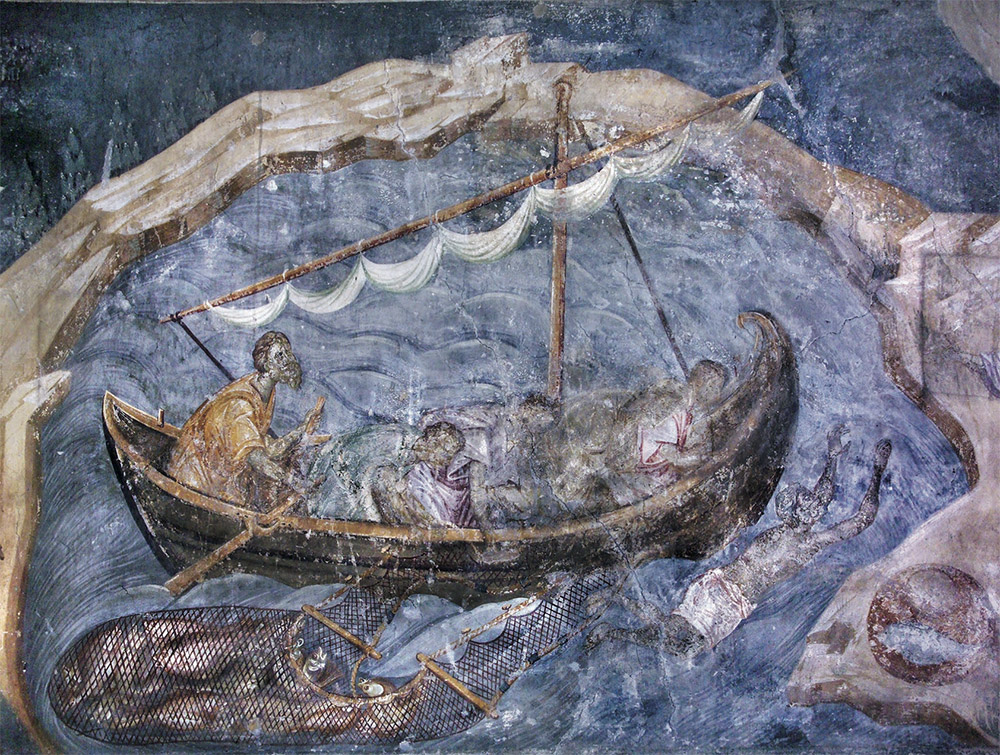
(Photo by Quang Nguyen Vinh from Pexel)
Third Sunday of Ordinary Time
“Laudato Si’ Journey – Sunday Gospel”
Sunday, January 21
THIRD SUNDAY IN ORDINARY TIME – CYCLE B
Mk 1, 14-20
Our journey continues on the steps of the word through this Sunday’s gospel which presents us with the beginning of Jesus’ mission and the call of the first apostles. It’s a story that can help us understand what ‘kairos’ is, the right moment to welcome the call to conversion and action.
We are in the first verses of Mark’s Gospel, after the story of John the Baptist and the brief temptations, in which we find the first words of Jesus spoken in the Gospel. He doesn’t make many speeches, so every word weighs like a boulder. This is not a “minor” passage, but rather one that sheds important light on the meaning of the human story of Jesus, as described in the Gospel of Mark: a journey towards Jerusalem, the fulfillment of a promise.
“After John was arrested”—when he was literally “handed over” exactly as Jesus himself would be handed over and betrayed at the end of the story. This, paradoxically, is the ‘kairos’ to begin the mission: Christ begins precisely when he learns that his prophet is in prison. When you are handed over and betrayed, then that is the right moment for God: man wants to hand him over, and he hands himself over, man wants to sell him, and he makes a gift of himself.
What happens when you hear terrible news? “Jesus went to Galilee”, the mission begins. The original text, very subtly, moves from the very first verses (in which an undefined “Jesus” is spoken about) to the passage after the baptism and temptations which define “Jesus”, precisely the one the Gospel speaks of. In fact, his action is to “proclaim the Gospel of God” which brings the beauty of Himself into an arid and thirsty world. The purpose of the word, of the logos, is to be spoken. The Jesus we have been waiting for brings this word.
This word essentially tells us two things. The first: “The time is fulfilled“, literally in Greek it is καιρὸς, Kairos, an opportune moment, a wonderful occasion. The second: “the kingdom of God is near”, better yet to say that the kingdom is here, there is no need to go elsewhere. Often our lives are in two dimensions, time and space and offer us many alibis. It is never the right time or place, as in the ideal world something is always missing. In the past it was different… I’m too small… In a big city there are more opportunities… And yet this Word tells us something else.
If space and place are right, here is the call: μετανοεῖτε καὶ πιστεύετε ἐν τῷ εὐαγγελίῳ, that is, “convert and believe in the Gospel”. We need to convert, to repent, to recognize that nothing is right without God. The tense used is the imperative, as if to tell us “continue to convert”, it is an action to be taken now in this place and at this time, without looking for who-knows-what in life. Believing in the Gospel immediately allows us to see with new eyes, not to physically “change the world” but to change the way we relate to the world, the planet and change the way we look around us.
Today’s passage also offers us a couple of very concrete examples. Mark’s style is concise, with very few words, and is very clear: the call we receive today is not something theoretical or philosophical, it is not just an idea, but something very concrete. Three essential words, which perhaps perfectly express what we should do in the here and now: Δεῦτε ὀπίσω μου, translated as “Come” (even better “here”), “behind” (there is a way to go), and “to me” (there is a relationship). Kairos arrives when it arrives, every moment is perfect, even while setting up the nets in the midst of everyday work. The καιρὸς is not when you are looking for God, (looking for something means that we are missing something) but when God is looking for you, because you are important to him! How nice to feel sought and visited!

(Net fishing from a boat, 13th century fresco. from the Mileševa Monastery)
Jesus walks along a sea that reminds us of slavery and invites us to walk with him. This path becomes a place from which he sees. He doesn’t keep his eyes down, but walks with his face held high, he contemplates, observes and searches. How much we have to learn from this, we who are always busy repairing our nets. He invites us to look as we walk. The first things that we see are two brothers who remind us of the first brothers of the Bible. How difficult it is to live in brotherhood, especially in work and everyday interests. God wants to inhabit precisely those difficult relationships.
Each call is similar, but not the same: there are slight differences which make every encounter unique. They are not all “fishermen”, they are brothers, they do not all have only “nets”: for example Simon and Andrew do not use trawl nets but rather use ‘cast or throw’ nets which were small nets used by poor fishermen; Their boat was different from the boat of the sons of Zebedee, which had better nets and also a young crew. However, each of these ‘brothers’ hear the same call to action, each called by name…. A call to follow Jesus.
The answer is in silence, it amazes us: they leave everything. They leave because they find everything. They are sought out by a gaze that gives life! They are called to do what they already do anyway….that is.. to be “fishers of men”. The sea, a sign of death and sin, becomes a place that brings life or gives life to many “fish”, many people in history! In this sense, God comes to inhabit our stories, our talents, our “Galilee of the people” and cover it with light and meaning. This leads the first apostles to leave everything behind because they actually find everything!
Let us pray to the Lord today, on this Sunday, so that we joyfully welcome the invitation to conversion proposed by Francis of Assisi, who said in the paraphrase of the Our Father: “Thy kingdom come: so that you reign in us through grace and make us reach your kingdom, where the vision of you is without veils, your love is perfect, the communion of you is blessed, the enjoyment of you is endless” (FF 269).
We warmly wish you a good Sunday, accompanied by the word of the Lord!
Laudato Si’!





